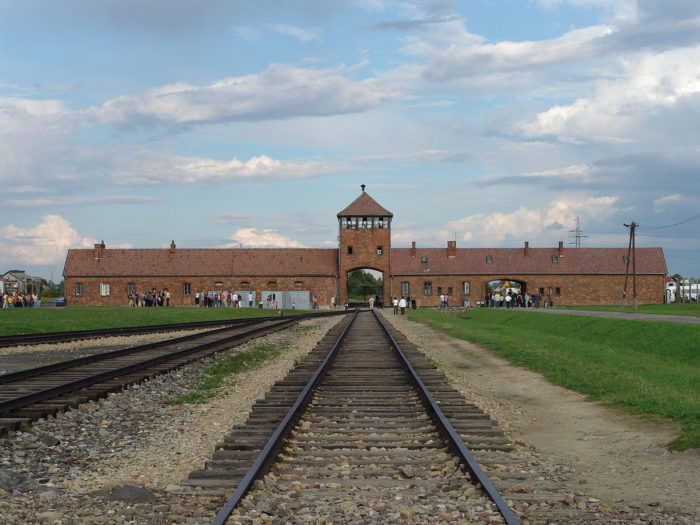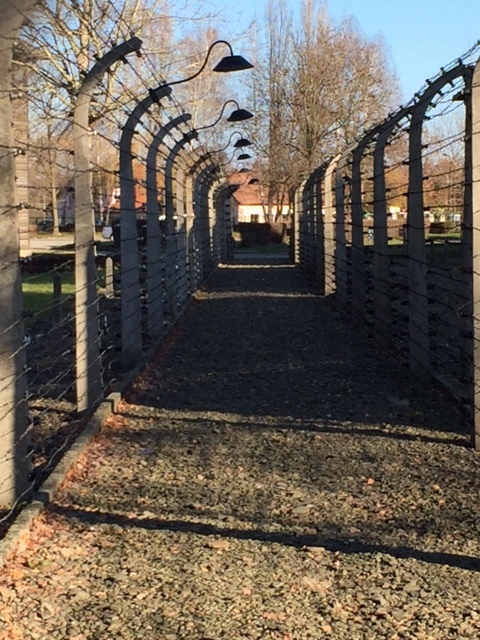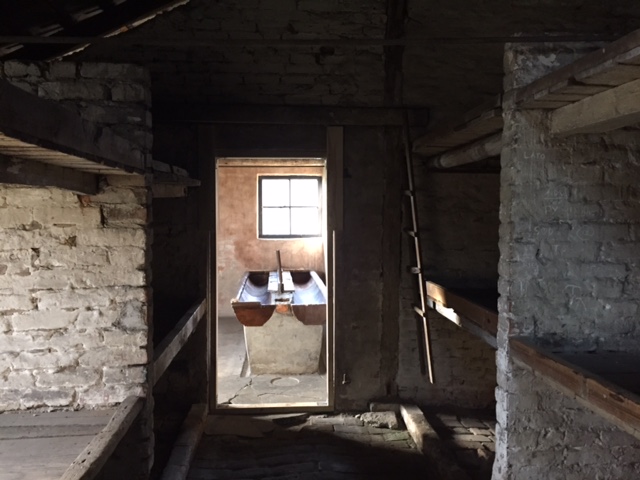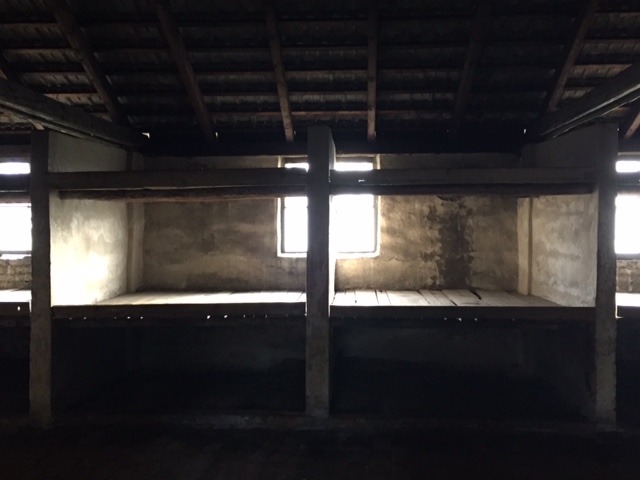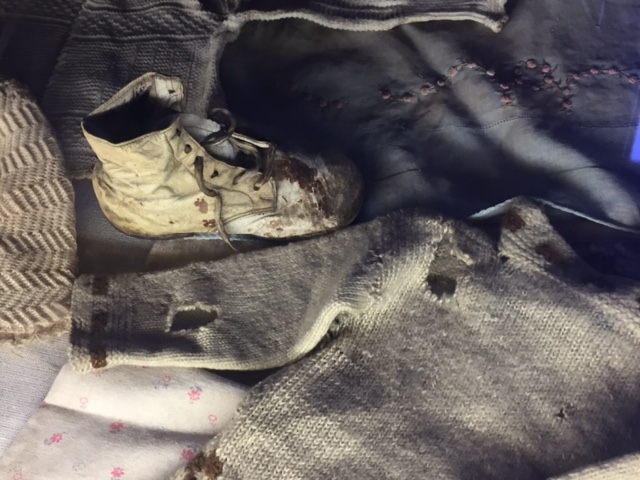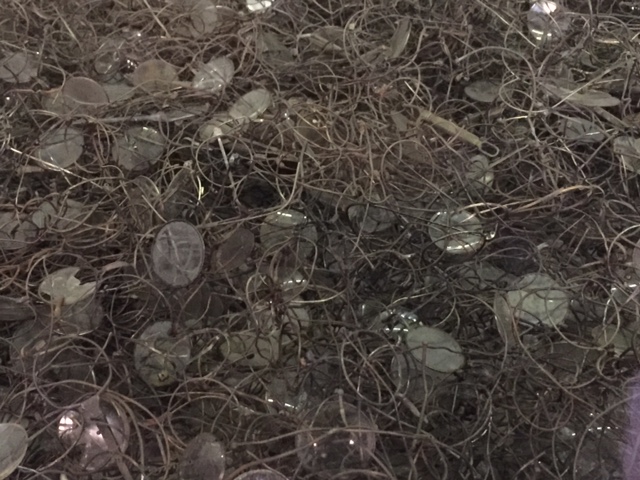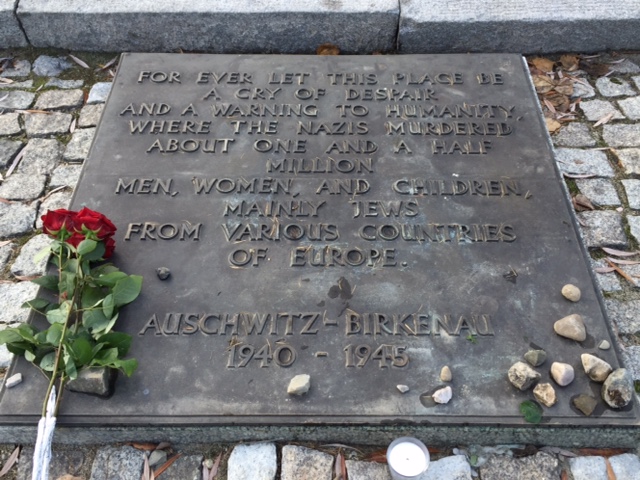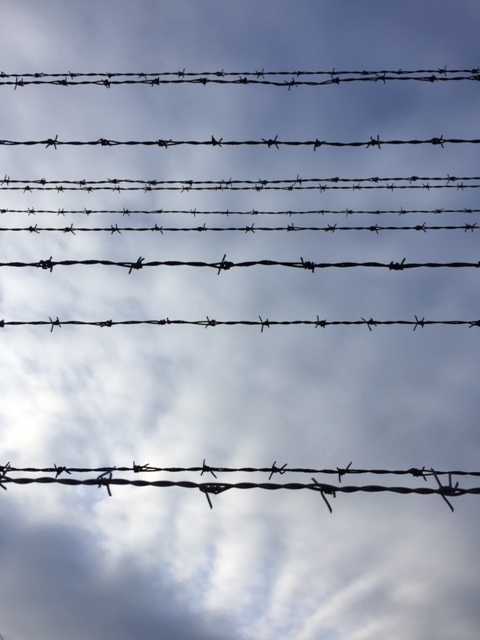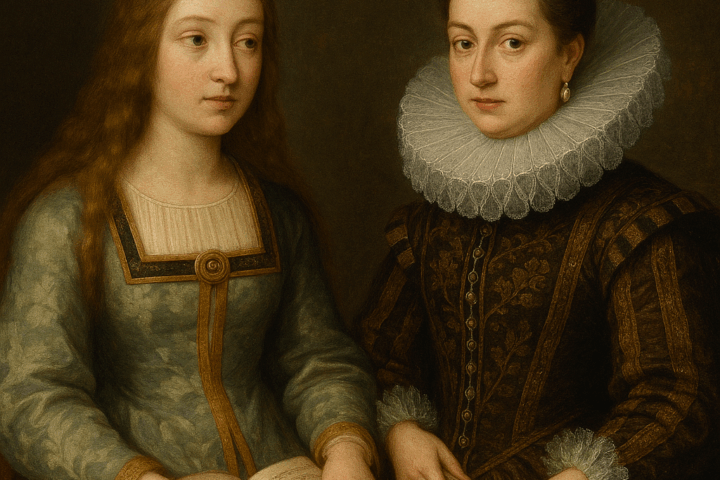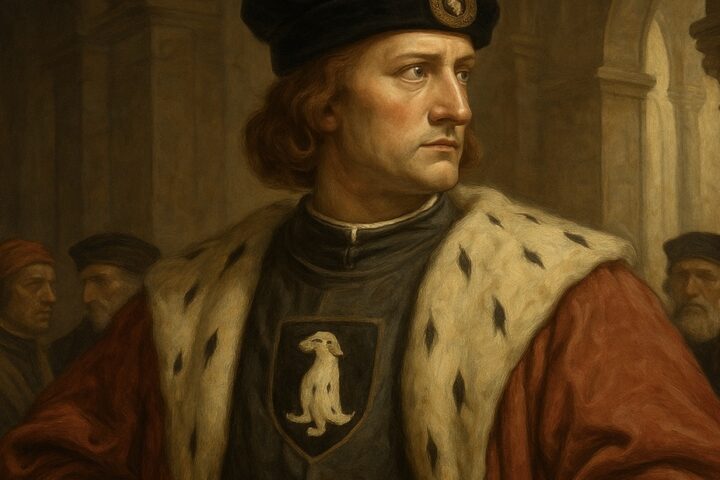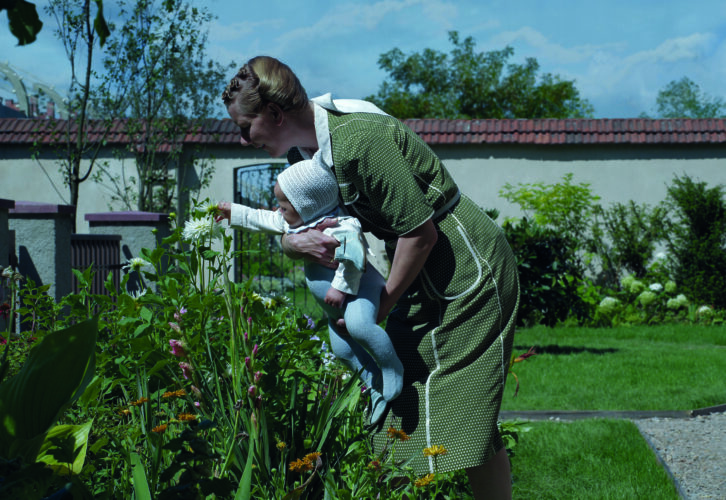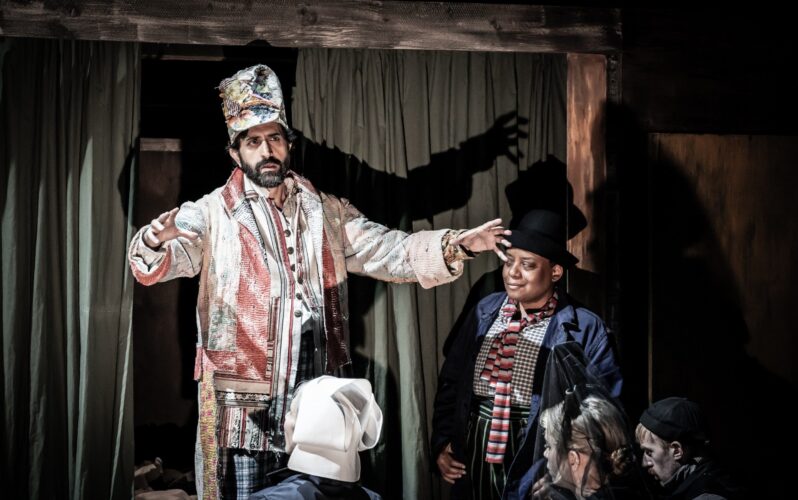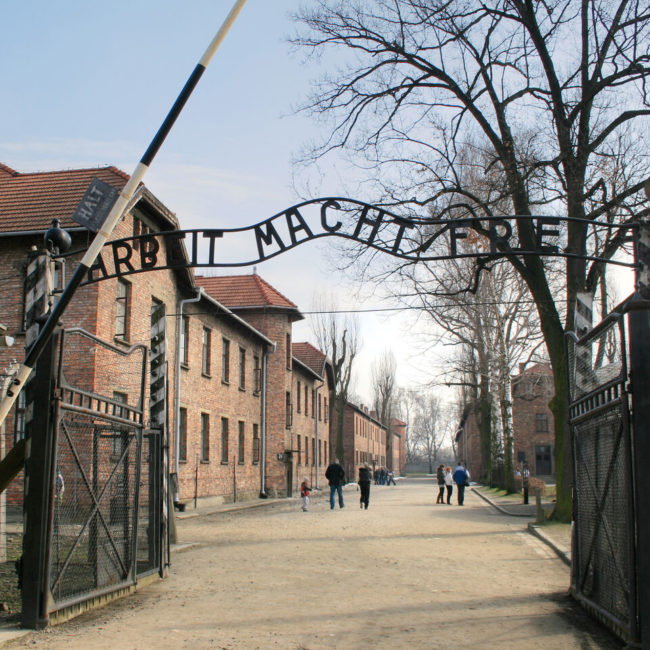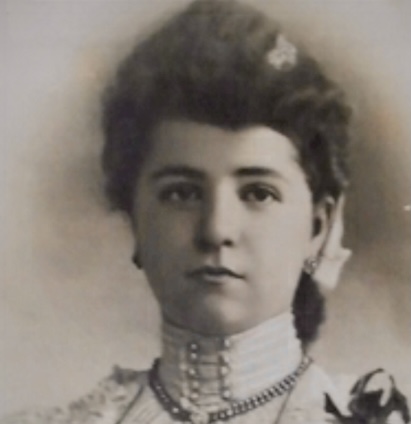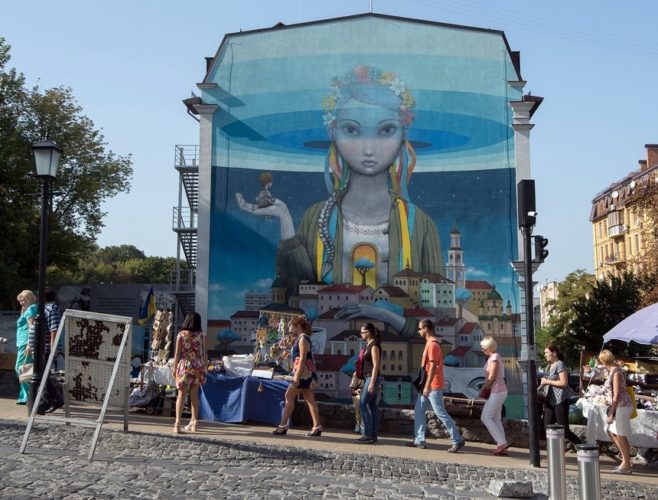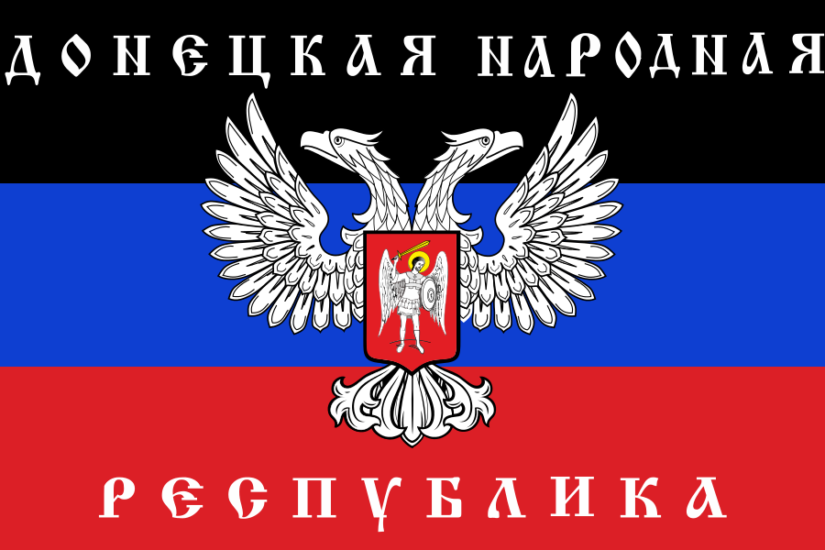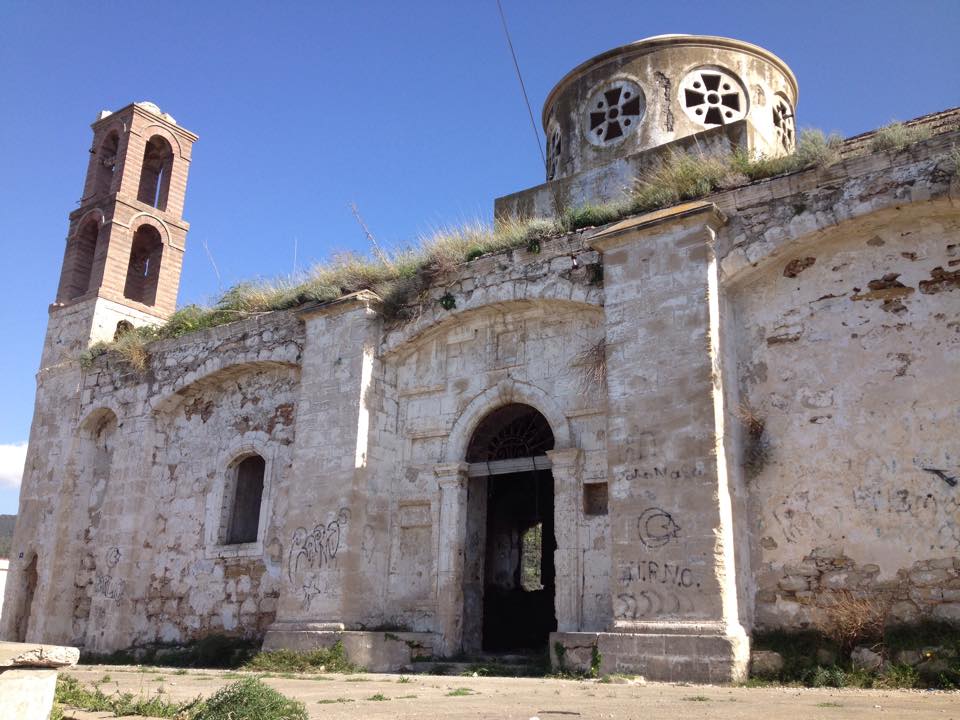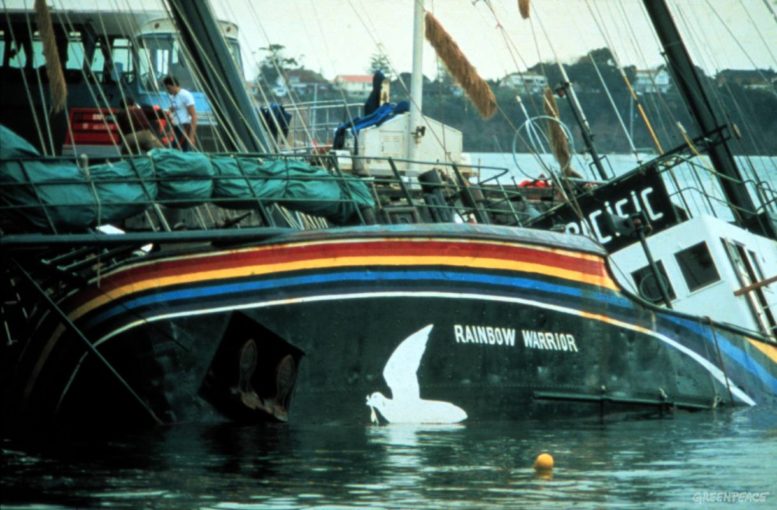Auschwitz-Birkenau
By Gil Cohen-Alloro
An Israeli artist visiting Auschwitz-Birkenau
We are at the gates of the notorious death camp that is Auschwitz. After a couple of grey cold miserable days in Krakow, it's eerily sunny and beautiful. The place is calm, trees swaying in the breeze, and the red brick buildings are almost attractive looking. It's freezing cold and the wind is biting. I'm with 4 layers, scarf, hat, gloves, and long underwear - how must it have been with striped pyjamas in the dead of winter.
Lots of people queuing up, we're being divided into groups, lined up. Security is tight, only very small handheld bags are allowed, an A4 size at the very most, apparently some artefacts have been removed from the place by over enthusiastic visitors who wanted a piece of history. It's all a bit strange, a death camp as a tourist attraction. I don't know why but I imagined there wouldn't be so many people. I reflect that it's inspiring and important that so many choose to visit and bear witness. I try, like every other visitor I suspect, to imagine myself there. How would I have coped? I don't think I'm going to feel like talking much, and hope Gerard won't mind my being a bit withdrawn.
I quickly go to the loo. 1 Zloty. Luckily I have coins. Why can't they just add a few zloty to the entrance fee and let us use the toilet for free (and keep the change)? We're kindly reminded to silence our phones. Very wise. We're given headphones and some radio that allow us to hear our guide, a Polish lady with a soothing if droning voice.
We are walked through the compound's different blocks in an orderly fashion. The lady with the soothing voice makes some interesting commentary. Here they slept on the floor, here they were tortured, here shot, here they cleaned the excrements (which was apparently one of the better jobs at the camp). The prisoner band playing happy German tunes in the mornings, the 19 hours standing in the cold, the hangings, the medical experiments, the attempts to escape, the 20 agonising minutes it took to die from the Zyklon B gas, the haunting faces on the identity photos, the thousands arriving daily, the number tattooed on their arms, the extraordinary efficiency. Thousands of shoes, brushes, pots, and human hair. Lots of it. Lots and lots. And the fabric made from the hair. They were into recycling long before it became fashionable. We walk through the compound, listening to the explanations, reading the commentary, snapping pictures. I just wish our guide talked a bit less and let us hear a bit more the silence of the walls and the murmur of those who perished.
The average life expectancy at the camp was 3 months. In wintertime most died within weeks. The sheer scale of it is mind numbing. If I thought Auschwitz 1 was vast, Birkenau - aka Auschwitz 2 - is 20 times larger. Here is where the extermination conveyor belt has been truly perfected. The train arrives conveniently straight into the camp, offloaded, quick selection to retain the stronger ones for work, a quick 'shower' and off to the crematorium... They were so proficient that towards the end 80% of the thousands arriving on each train (those who survived the day's long journey standing in cattle carriages with no food or water that is) were gassed and cremated in a matter of hours.
We're about to leave, I need to pop to the loo again. 1 Zloty. Luckily I have coins.
I'm not quite sure what I expected from my visit to Auschwitz. Being an Israeli I've grown up with images of the horrors of the Holocaust. From a relatively young age we learn about it in school, see films, attend memorials, visit museums and hear testimonials from survivors. So not a lot was new to me. It was not the earth shattering experience that one might expect. And yet I think being there has affected me more than I'm willing to admit. I've felt a bit low and detached for the rest of the day, and I have a feeling it wasn't only due to the consecutive late nights I've had.
Bearing witness to what can only be described as the most horrendous crime against humanity in the history of human kind evokes such profound sadness. Simply as a human being, let alone of Jewish heritage.
What are we to do with that information? How should it inform our choices today? Knowing what people are capable of doing to each other when a deadly belief system combines with efficient execution, how are we to respond? How are we to safeguard? When our individual ability to impact reality is negligible in the face of overwhelming circumstances, how are we to live our lives?
We're on the ride back to town. Our charming young driver puts some music on. Bonnie M. Michael Jackson. Is he trying to cheer us up or something? I stop myself from saying anything on the way and gently point out to him on arrival that at least some of us might still be absorbing the experience we just had, and perhaps pop music is not quite the best background. He looks puzzled.
form-idea.com London - 17/05/2016 | Read this article in French
